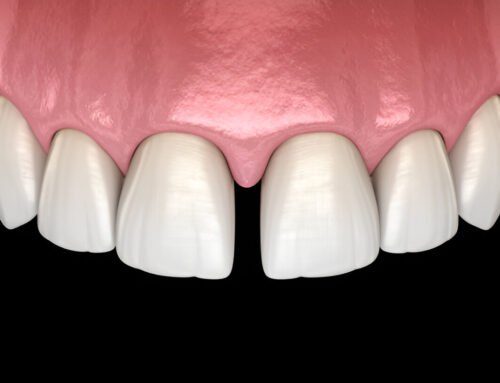Can Composite Bonding Fix Crooked Teeth? All You Need To Know
Crooked teeth can cause embarrassment and affect your confidence, especially in social situations. You might have heard about composite bonding. It’s a quick and low-cost way to improve your smile. This article will explore if bonding can fix crooked teeth. It will explain how the process works and its benefits and limits.
What is Composite Bonding?
Composite bonding is also called cosmetic bonding. It is a dental procedure. It involves applying a tooth-coloured resin to the teeth. This resin can be shaped and polished. It matches the surrounding teeth and looks natural. It can treat many dental issues. These include gaps, chips, and discolouration.
Can You Have Tooth Bonding with Gum Disease?
How Does Composite Bonding Work?
The composite bonding process is relatively simple and quick. Here is a step-by-step guide:
-
Consultation: Your dentist will examine your teeth and discuss your goals. They will determine if composite bonding is suitable for your specific needs.
-
Shade Matching: The dentist will use a shade guide to match the resin with your natural teeth colour.
-
Preparation: The surface of your teeth will be cleaned, and the dentist might slightly roughen it to ensure a strong bond.
-
Application: The resin is applied to the teeth and moulded to the desired shape.
-
Curing: A special light is used to harden the resin.
-
Polishing: The bonded teeth are polished to blend seamlessly with your natural teeth.
Is Composite Bonding Done on the NHS?
Benefits of Composite Bonding
Composite bonding offers several advantages, making it a popular choice for many patients.
-
Quick Procedure: The entire process can be completed in a single visit, usually within 30-60 minutes per tooth.
-
Affordability: Composite bonding is generally more affordable than other cosmetic dental treatments, such as veneers or crowns.
-
Minimally Invasive: Unlike veneers, composite bonding requires little to no removal of the natural tooth enamel.
-
Aesthetic Appeal: The resin can be shaped and coloured to match your natural teeth, providing a natural and attractive appearance.
-
No Need for Anesthesia: The procedure is painless and typically doesn’t require any anaesthetic.
Can Composite Bonding Fix Crooked Teeth?
Composite bonding can be an effective solution for minor crookedness or misalignment. The dentist applies resin to the teeth. This fills gaps and evens out tooth length. It also creates a straighter look. However, there are limitations to consider.
Suitability
Composite bonding is ideal for minor corrections. If your teeth are severely misaligned or you have a bad bite, braces or aligners might be better. Your dentist can assess your situation and recommend the best treatment option.
How Much is Composite Bonding?
Aftercare for Composite Bonding
Proper aftercare is crucial to maintain the appearance and durability of composite bonding. Here are some tips:
-
Oral Hygiene: Brush your teeth twice a day and floss daily to keep your bonded teeth clean.
-
Avoid Staining Substances: For the first two days after the procedure, avoid tea, coffee, and tobacco to prevent staining.
-
Regular Check-ups: Visit your dentist every six months for regular check-ups and cleanings.
-
Be Gentle: Avoid biting hard foods or objects, and refrain from nail-biting to prevent chipping the resin.
Durability of Composite Bonding
With proper care, composite bonding can last between 5 to 10 years. However, it is not as durable as other treatments like veneers or crowns. Regular dental visits and good oral hygiene will help extend your composite bonding’s lifespan.
Should You Consider Composite Bonding?
Composite bonding can greatly enhance your smile. It’s a good option if you have minor dental flaws. It’s a personal choice and should be made after consulting with your dentist. They can evaluate your dental health. They can help you decide if bonding is right for you.
Conclusion
Composite bonding is a flexible and cheap treatment. It can improve the look of your teeth and boost your confidence. It can fix minor crookedness. But, it may not help with severe misalignment or complex dental issues. Consult with your dentist. They’ll help you determine if composite bonding is best for your smile.
Can Composite Bonding Straighten Teeth?
Schedule Your Consultation at Broxburn Smile Centre
Ready to transform your smile with composite bonding? At Broxburn Smile Centre, our dental team is experienced. They are here to help you get the smile you’ve always wanted. We offer personalised consultations to determine the best treatment plan for your needs. Contact us today to book your free consultation and take the first step towards a more confident you. Call us at [insert phone number] to schedule an appointment. We look forward to seeing your smile!
FAQs about Composite Bonding
How long does composite bonding last?
With proper care, composite bonding can last between 5 to 10 years.
Is composite bonding painful?
No, the procedure is painless and usually doesn’t require anaesthesia.
How long does the composite bonding procedure take?
The procedure can usually be completed in a single visit, lasting 30 to 60 minutes per tooth.
What is the aftercare for composite bonding?
Maintain good oral hygiene, avoid staining substances for 48 hours, and visit your dentist regularly for check-ups.
Can composite bonding fix severe misalignment?
Composite bonding is best for minor corrections. Severe misalignment may require orthodontic treatments like braces or aligners.










